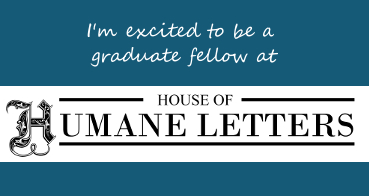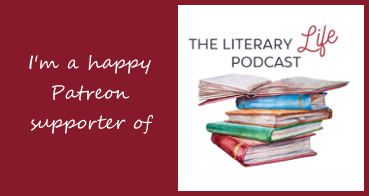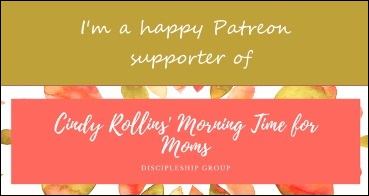Our world is becoming more and more chaotic. Without getting into too much political theory, let me say that I believe that there are some who are glad to see this and are working for this culture of disorder. The story at the beginning of the Judeo-Christian scriptures, as well as other mythologies, tells of order (cosmos)being brought to chaos, and that this is a very lovely way to live and for a society to function. Why would anyone want it any other way? I’ll leave that for you to ponder.
In Al Pacino’s 1996 film “Looking for Richard”, he involves several American & British actors in discussions of Shakespeare’s play Richard III and in filming many scenes from the play. He also goes out to the street and interviews random people about their knowledge and thoughts about Shakespeare. From my memory (maybe one day I’ll hunt down the scene on my VHS tape) he talks to a man on the street who has the appearance of living on the streets. I remember that the dental work seemed to be lacking. But this guy spoke very eloquently. He spoke about how kids don’t have language anymore. He said maybe if they knew some Shakespeare, they would have words to express their feelings, and there would be less physical violence going on.
Words. Words with meaning. Phrases and sentences with rhythms to communicate clearly their meanings. Words and rhythms of stories and songs that touch our hearts, souls, and minds. Stories and songs of fiction. Stories and songs of history. Stories and songs of heroes. Stories and songs of the Everyman like you and me. They touch our Minds. We know we can be better —- kinder, more honest, more giving, more gracious. They touch our Hearts and Souls. We want to be better. We want to live in community where each part does its work and looks out for his neighbor as he does himself.
The guy on my old VHS is right —kids don’t know Shakespeare. Kids don’t even know standard nursery rhymes, folk songs, and folk tales. I’ve learned this through decades of teaching piano. I learned this as I listened in on my husband’s public speaking class for teens. As he was trying to find something they could relate to for whatever his purpose of the moment was, he listed song after song, tale after tale, rhyme after rhyme, and this table of about a dozen homeschool(!) kids said, “Nope, nope, nope, didn’t know it.” I’m over there thinking, What a waste of homeschooling!
My friend Angelina has a Master’s degree in Literature. (She dropped out of a PhD program, weary of an academic world that really doesn’t care about the material.) She teaches Literature classes to middle school, high school, and adults. She also hosts, along with her husband Thomas Banks and Cindy Rollins, a weekly podcast called The Literary Life. Angelina’s main mantra is Stories Will Save the World. I highly recommend going to the podcast and finding the episode on “Why Read Fairy Tales?”, as well as others of this general nature. You will find her on a few other podcasts speaking about the importance of story — fairy tales and myths. (For starters, see here and here.) She believes that a child needs a foundation of these stories. I love to hear her stories about the connections that her middle school students are making with other stories as they are understanding the elements of story under her instruction. And it doesn’t stop with story. They relate what they learn through story to what they see going on in the world around them. And having been transformed by story, they are resolved to live rightly in the world.
My friend Cindy raised and home-educated 9 children. She speaks of the poems that they read and memorized together, and how some of those poems have strengthened her adult children as they remembered phrases from the poems in their times of need. They began with nursery rhymes, as we did in our family. Many of the rhymes I will be doing with my pre-school class are ones that my husband and I chanted over and over with our son. “Diddle-Diddle-Dumplin’, my son John….” So fun. So easy to learn and remember. Wonderful rhythms. And did you know that these rhythms aren’t just in poetry? You find them in prose and in the spoken word. I often notice the rhythm of my son and husband’s speech. They use a lot of triplets! These rhythms of rhyme and song get inside of you and help you to be a more effective communicator. It is not just about the right words but how you deliver those words. Who in the world wants to speak empty words to the wind? Don’t you want what you have to say matter?
When it comes to folk songs, in my world no one is more a champion of singing and singing these songs of work and play and history than my friend Wendi Capehart. Wendi is a founder and advisory member of the curriculum we have followed since my son was a toddler. (He will be a high school graduate in May.) AmblesideOnline has “folk songs” as part of the curriculum and gives monthly suggestions for your students to learn. Wendi often writes about the history and meaning of the songs on the Advisory blog. As I related in this post, her soulful rendition of “The Happy Wanderer” that she taught at the AO retreat was one of the most moving moments of that event for me. What singing does for a person has been well-documented. And singing in community is even better. Singing songs that bring joy just with their rhythms, singing songs that move us with their sad, cautionary tales, singing songs that tell of historical events that inspire us to be brave and stand for what is right.
Over these past several years I have been inspired by the words of Angelina, Cindy, and Wendi, and it occurred to me as I approach my retirement as a home-educator, that I want to be a part of filling this void in the life of the children around me, and where better to begin than with some of the youngest of the children. Thus was created from my heart — “Story, Rhyme, & Song” for 3 to 6 year olds. I’m really looking forward to this — part of this is fulfilling a wish to “do over” (with one child, I only got to do this once, and I’ve learned so much through these years). I’m hoping to inspire families to make these stories, rhymes, and songs part of their family life. We did, and I know it has had a huge impact on our life as a family and in our care about and work and communication with the world around us.






